AAM: Is al-Anbar lost?
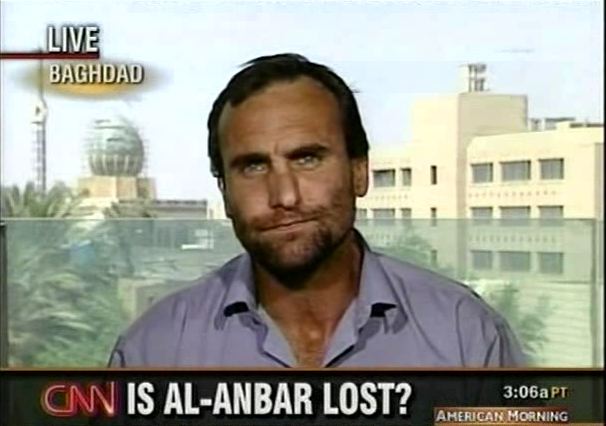
Click photo to play
Length: 4:15
MILES O'BRIEN: Winning the battle but losing the war, that is the dire assessment contained in a secret U.S. military report about Iraq's Al Anbar Province. That report saying a shortage of U.S. troops a large part of the problem there.
CNN's Michael Ware has more for us live from Baghdad.
Michael, we were talking about this yesterday, you were saying you were seeing al Qaeda, al Qaeda up -- sort of up close and personal there, closer than you'd like it to be, and yet not enough troops on the ground.
MICHAEL WARE, CNN CORRESPONDENT: Yes, absolutely, Miles. I mean if you'll recall, you and I were talking about this from Al Anbar last week, and we've mentioned it many, many times in the past. I mean this is not a new situation, nor is it a new story.
This Marine military intelligence report service is merely relaying the facts as they have existed for almost two years now there has simply not been enough troops in Al Anbar Province to attack al Qaeda. I mean, honestly, the American military commanders, the planners here, the ones who are making these decisions have not committed to the fight against al Qaeda out there. They don't have the number of forces to even cover the ground.
The best that they say they can hope to do is disrupt al Qaeda. As the American Marine general who commands that western province last night said, my mission is to train Iraqis. That's what I had the troops for. If my mission changes, if I am told to win this fight against al Qaeda-led insurgents, then my metrics, his troop numbers, would have to change -- Miles.
M. O'BRIEN: All right, so I guess this is a fundamental question as to what the goal and the mission is for those soldiers and marines on the ground there in Iraq. Is that the reason they are not getting more troops? Are they asking for more people?
WARE: Well, look, on the ground these boys are just being fed essentially into a meat grinder. They are being -- I have been on those streets with these kids as -- and I've watched them bleed. And it's just the progress is so intangible. I mean they have been sent out there to hold the line with the people who are sending them knowing that they are undermanned and unable to defeat the enemy while attention is focused elsewhere.
You can say this about the entire war in Iraq, you either do it or you don't is the feeling among many senior commanders. And right now militarily this war is being fought with one hand tied behind the Army's back. The reason for this is politics. One commander once said to me that he calls it the big lie. If you need to ask up high through the chain, to Pentagon, to D.C. for more troops or more resources, then by implicit admission you are saying that there is a problem on the ground, and that's not the message that D.C. wants to put out -- Miles.
M. O'BRIEN: So there is pressure that is put on from the political power structure in Washington on the Pentagon all the way down the chain not to ask for more troops?
WARE: There's certainly that dynamic. Whether the pressure is direct or indirect, it's very much perceived and it's taken as read. No U.S. commander, no general will come on camera and tell you this, but off-line, you see it for yourself. And in their quiet moments, they will tell you about it. I mean this is where the politics wraps the military operation up in knots.
What does this do, Miles? This does two things. One, it allows al Qaeda to breathe and arguably become stronger. Secondly, it allows America's other great contestant, its other great component here in Iraq, to get ever stronger. And that is Iran.
Iran is battling with America for political influence. And in many ways with this government it has much closer ties to Tehran, this current Baghdad government, than it does to Washington. And we now see repeated allegations from military intelligence, President Bush, Secretary Rumsfeld and Ambassador Khalilzad that Iran is also sending bombs and bullets -- Miles.
M. O'BRIEN: Michael Ware in Baghdad, thank you very much -- Soledad.
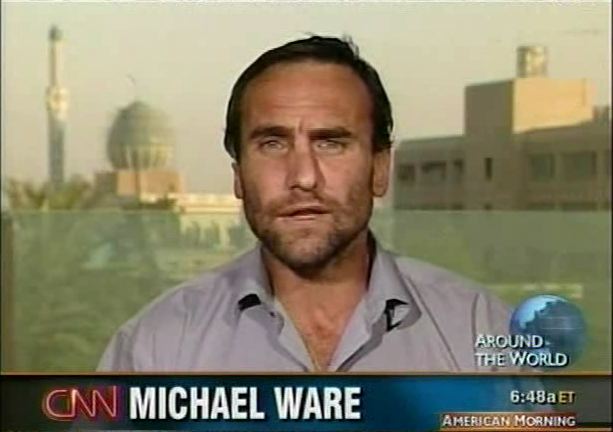
Click photo to play
Length: 0:29
S. O'BRIEN: Here's a look now at stories that CNN correspondents around the world are covering today.
(BEGIN VIDEOTAPE)
MICHAEL WARE, CNN CORRESPONDENT: I'm Michael Ware in Baghdad.
This morning, the gaping black hole in the president's global war on terror. In Iraq's western Anbar province, an al-Qaeda headquarters is located. But as American commanders concede, they do not have the troops to do anything about it.
Meanwhile, the bombs and the deaths continues.
(END VIDEOTAPE)
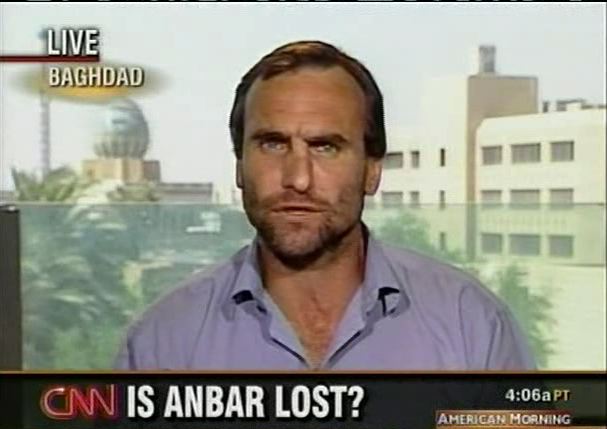
Click photo to play
Length: 3:30
SOLEDAD O'BRIEN, CNN ANCHOR: Baghdad was rocked by two deadly explosions this morning. A roadside bomb in the center of the city killed at least 14 people, including a police officer. Sixty-seven other people were injured in that attack.
Also, Iraqi police found more than 60 bodies around the city today. Many showed signs of torture.
A secret report on the war on Iraq is offering a grim assessment for the future. It takes a look at the declining situation in the volatile western al Anbar province. It says there aren't enough troops to fight the enemy. CNN's Michael Ware spent lots of time in al Anbar with the troops there. He's in Baghdad this morning.
Michael, good morning.
MICHAEL WARE: Good morning, Soledad.
Yes, this report really tells us nothing new. I mean, in one sense, it's good that it's finally surfaced. I mean military intelligence has been saying this for well over a year. And when you go out to al Anbar province, you can see it for yourself. The troops on the ground know it. The commanders know it.
I mean this is very much an intractable fight with an al Qaeda lead insurgency in which American commanders, the top ranks, the war planners, have not committed to the fight. There simply is not enough troops out in Anbar to really attack al Qaeda. The best they can hope to do, as American commanders will say on the record, is that they hope they can disrupt al Qaeda and essentially make their life harder.
But, for example, there is a known al Qaeda in Iraq headquarters sitting there just north of Ramadi in an area the size of New Hampshire that al Qaeda operates in. There's just a few hundred troops. So that's the situation that we see here.
Soledad.
S. O'BRIEN: So then the troops that are on the ground that you talked to, what specifically are they telling you?
WARE: Well, these are professional soldiers. I mean, these are Marines and the Marines say we go where our commander in chief needs us to go. And they expected they're going to be thrown into the worse of the worse.
And one battalion out there that I've spent much, much time with, Soledad, they really have been in the worst. They've paid, as a battalion, a group of less than 1,000 men, they've paid a price in blood and the deaths of their friends more than most brigades of 5,000 men lose in 12 months. And they're only out there for seven months.
The soldiers, the Army soldiers themselves, they're also committed to this. There's a new brigade that's just rotated in. They're out there trying new strategies, new tactics. They really want to have a go.
But, honestly, al Qaeda is still dominating Ramadi. They dominate the insurgency. They dominate the population. The military knows it. Military intelligence knows it. It's there for all to see.
But the military is being forced to fight this war with its arm tied behind its back. It doesn't have enough troops in al Anbar. It doesn't have enough troops in Iraq. As the officers say to me, we either fight this war or we don't because, in the meantime, al Qaeda continues to breathe and suck the oxygen it needs and become stronger.
And Iran, America's other great opponent here in Iraq, is gaining more and more influence. The government here in Iraq has closer ties to Tehran than they do to Washington. And now we see, after years of evidence that Iran is sending bombs and bullets to join that political influence, according to U.S. military intelligence.
Soledad.
S. O'BRIEN: Michael Ware is in Baghdad for us this morning.
Michael, thanks.
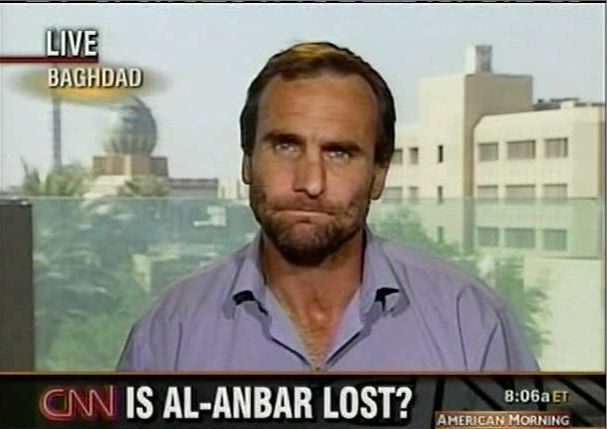
Click photo to play
Length: 6:32
MILES O'BRIEN: More violence in Iraq and once again the police are the target. Two bomb attacks there this morning to tell you about. The biggest, a roadside bomb in the center of the city that killed at least 14. A police patrol was passing by at the time. Sixty-seven others injured in that attack.
Also, Iraqi police found more than 60 bodies all around the city today, many showing signs of torture.
A desperate situation now in western Iraq. We're talking about the volatile al-Anbar province. A top military intelligence officer offering a grim assessment of what's going on there. He says 16,000 more troops, a division, is needed. But the top commander over there says more troops would be nothing more than a temporary fix.
Joining us to talk about the situation on the ground in al-Anbar are Barbara Starr at the Pentagon and Michael Ware in Baghdad.
Let's begin with you, Barbara, and why we're hearing such an apparent internal debate at the Pentagon.
BARBARA STARR, CNN CORRESPONDENT: Well, this is all really coming from the military intelligence arm, essentially, Miles. Indeed, as you say, the head of Marine Corps intelligence in Anbar Province has given a very grim, very sober, classified assessment of the security situation there.
Let's be very clear. We're talking Ramadi, Fallujah, the heart of the insurgency and the heart of al-Qaeda in Iraq operations. This very sober assessment says there is very little security in that area and very little functioning government.
This classified assessment has not been released, but the story was first broken by Tom Ricks of the "Washington Post."
(BEGIN VIDEO CLIP)
THOMAS RICKS, "THE WASHINGTON POST": The military basically could win any tactical engagement that it had, but there was very little security progress coming from that and that the political and social systems were deteriorating and that al-Qaeda in Iraq, the insurgent group, was filling the vacuum.
(END VIDEO CLIP)
STARR: Now, Ricks talking there about what that assessment says that he broke in the "Washington Post."
But this now, Miles, has sparked a good deal of controversy and a very unusual reaction. A classified report now being addressed publicly, as you say, by the top Marine commander in Iraq. And he is saying yes, sober, but he believes that there is progress being made and he believes that he doesn't need more troops in Anbar province.
He's got about 30,000 U.S. troops there. He thinks, at the moment, for the mission he has, that's enough, that it's really the job of Iraqi security forces to handle security out there.
Listen to General Zilmer, who had a telephone press conference yesterday.
(BEGIN VIDEO CLIP)
MAJ. GEN. RICHARD ZILMER, U.S. MARINES, COMMANDING GENERAL, MULTI-NATIONAL FORCE: I have never heard any description about the war being lost before last weekend. We are winning this war. We are certainly accomplishing our mission.
(END VIDEO CLIP)
STARR: Miles, perhaps one of the most interesting things General Zilmer said, however, is he does not see his primary mission as being winning against the insurgency anymore. He says the primary mission for U.S. forces in Anbar province is to train the Iraqis -- Miles.
M. O'BRIEN: Well, I guess it's all in how you define the goal. That's obviously very important.
Barbara Starr, thank you very much.
Let's get over to Michael Ware, who spent a lot of time on the ground in al-Anbar province and has been talking to Marines and soldiers who are pounding the ground there.
What are they saying on the ground? Would they like more support and this whole notion of their role being primarily to train Iraqis? Does that jive with what you're seeing?
MICHAEL WARE, CNN CORRESPONDENT: Well, Miles, on the ground in Ramadi, there's not that much training going on by that many troops. There are small adviser teams. They do some training. But your day to day existence for an American soldier or an American Marine in Ramadi is blood and guts battle.
It's constant IEDs, direct arms, you know, gunfights. It's being mortared. I mean the fight has evolved. In the last three or four months, new U.S. tactics has forced al-Qaeda to shift its tactics. But as the brigade commander who owns Ramadi says, we are in contact with the enemy every day. And that enemy is al-Qaeda. There's a direct link between the men we fight street-to-street, face-to-face, day-to-day and the people who brought down the World Trade Center.
And let's look at what General Zilmer, the Marine commander of al-Anbar, said last night. I spoke to him in that conference last night, and Barbara is right. He's not saying that he doesn't need more troops. What he's saying is that right now all I'm being told is to train. But if you want me to win against an al-Qaeda-led insurgency, then I do need more troops.
He said you want me to win? I need to change my metrics. He needs more troops.
The American military, the planners, have not committed to the battle. This is giving al-Qaeda the oxygen it needs to breathe. In fact, there is an al-Qaeda national headquarters sitting there and there's simply not enough soldiers to go into that area and take control of it -- Miles.
M. O'BRIEN: Well, let me give you, in a hypothetical, the people you're talking to, the commanders you're talking to, the generals, if they had those greater numbers of troops, could they score a real lasting victory against al-Qaeda that would have a long range impact in Iraq?
WARE: Well, yes, they could. I mean, obviously there's always going to be at least two tracks. I mean they need to train up the Iraqi security forces. But that -- honestly, I've been in combat with Iraqi security forces. It's such a mixed bag, that is such a long way off.
And let's look at the Iraqi security forces in al-Anbar.
The Iraqi Army, the two divisions there, one is proven, one is not. One is essentially a group of Shia militias in government uniforms. Both the units are Shia. So the local Sunnis there, even the people who are working with the Americans -- I've got a police chief on camera, on record, saying these people are -- these soldiers are taking innocent people and torturing them. He said it's Baghdad, there are Iranian links, these, you know, Shia soldiers that are herding our people toward al-Qaeda.
So, if you bring in more U.S. troops, you can attack al-Qaeda while you build the security force. Because right now al-Qaeda is not being put on the back foot.
The commanders say, the soldiers say, the best we can do is disrupt them; sure can't decimate them, no hope right now of defeating them -- Miles.
M. O'BRIEN: Michael Ware in Baghdad, thank you very much -- Soledad.
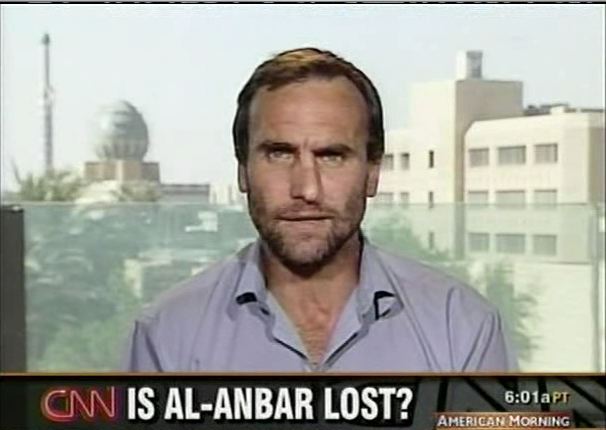
Click photo to play
Length: 2:23
[No transcript available]
